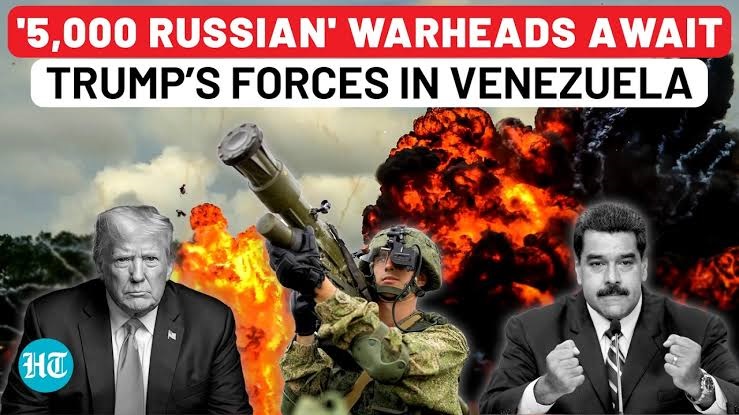
Russia has thrown its weight behind South American ally Venezuela in the face of ballooning U.S. military assets close to its coastline — at least diplomatically, ‘Newsweek’ notes.
The links between Russia and Venezuela are commercial, economic and military. Oil, armaments, cryptocurrencies, sanctions and mercenary footprints have kept the countries bonded for decades under Putin and initially under former Venezuelan leader Hugo Chávez, Maduro's predecessor.
Caracas and Moscow signed a strategic partnership in May that was ratified by the two leaders in October. Sergey Lavrov, Russia's veteran foreign minister, insisted on Tuesday the Kremlin was "ready to fully act" in Venezuela's defense, deepening the relationship cultivated over decades. A senior Russian official suggested that Moscow could send its experimental Oreshnik ballistic missile to Caracas.
But there will be firm limits that likely will not include troops to augment the military advisers Russia has sent for years, analysts say. Russia is preoccupied fighting the war on its own border and is unlikely to have much to spare for a far-flung ally.
There are other tools in Russia's hands. While it has little concrete military backing to offer Maduro, it may back a proxy conflict, Sabatini said. That could mean handing over financial support to certain people or funding paramilitary groups, he said, or a helping hand skirting sanctions.
A Russian cargo aircraft, sanctioned by the U.S. and known for transporting defense equipment to Venezuela, landed in the country late last month before quickly departing, according to flight records.
But Putin may even be wary of antagonizing U.S. President Donald Trump, who has overseen a relative thaw in glacial relations with the U.S., said John Feeley, a former U.S. ambassador to Panama who also served as the principal deputy assistant secretary of state for Western Hemisphere Affairs.
The “last thing” Putins needs to do is antagonize Trump unnecessarily by committing new hardware to a fight in Trump’s sphere of influence, he told Newsweek. Where Moscow could help Maduro is by sharing signals or cyber intelligence, Feeley said.
The U.S. is now more than two months into a lethal strike campaign it describes as an uncompromising crackdown on narcotraffic from Latin America into the U.S. According to the administration's own numbers, at least 75 people have been killed in the southern Caribbean and eastern Pacific.
Critics, including international experts, former U.S. officials and lawyers, have condemned the attacks as illegal under international law. It's a bad look, in the eyes of American allies. Colombia said it was stopping sharing intelligence with the U.S. until it stops attacking suspected drug vessels, a step the U.K. reportedly took at least a month ago.
For many, it's hard not to see the bloated U.S. military buildup in the Caribbean as anything other than a push to topple Maduro, who has a $50 million bounty hovering over his head. Maduro, with no hint of rapport with Trump, has appealed for peace, including in English, while saying that Venezuela is ready for an armed attack. Caracas said this week that it was launching massive military drills with hundreds of thousands of soldiers.
read more in our Telegram-channel https://t.me/The_International_Affairs

 9:54 16.11.2025 •
9:54 16.11.2025 •






















